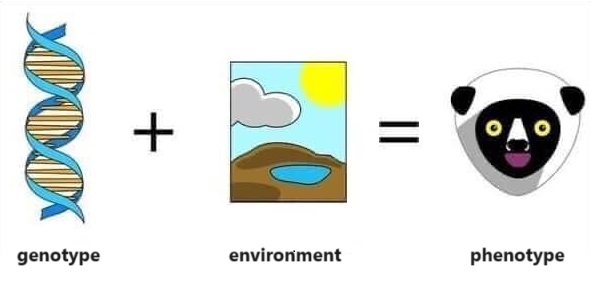
Environment influences genetics and character more than race – Modern dog breeds are only about 160 years old and are the result of selection for specific aesthetic traits. To study how genetics align with breed characteristics, Morrill et al. sequenced the DNA of over 2000 pure and mixed breed dogs. This data, along with owner surveys, was used to map genes associated with behavioral and physical traits. Although many physical traits were associated with breeds, behavior was much more variable between individual dogs. Dogs are, in fact, a natural system for studying the genetics of complex traits. Millions of companion dogs live in human homes, share our environment and receive sophisticated medical care. Behavioral disorders are treated with human psychiatric medications, achieving similar response rates, and genetic studies suggest a shared etiology with some human psychiatric conditions. Before 1800, dogs were probably selected primarily for functional roles such as hunting, guarding, and herding. Modern dog breeds are a recent invention defined by conformation to a physical ideal and purity of lineage. Breeds are commonly attributed temperaments and behavioral inclinations based on the presumed function of the population of ancestral origin. By extension, the breed ancestry of individual dogs is assumed to be predictive of temperament and behavior. Through this science project powered by the Darwin’s Ark community (darwinsark.org), a diverse group of companion dogs was studied by collecting phenotypic data to explore how genetics shape complex behavioral traits in this unique natural model. The study was carried out by interviewing 18,385 dog owners (49% purebred) and sequenced the DNA of 2155 dogs. The study shows that the behavioral characteristics attributed to modern breeds are polygenic, influenced by the environment and are found, with variable prevalence, in all breeds. Behaviors perceived as characteristic of modern breeds are assessed to result from thousands of years of polygenic adaptation preceding breed formation, with modern breeds characterized primarily by aesthetic traits. By embracing the full diversity of dogs, including purebred dogs, mixed-breed dogs, purpose-bred working dogs, and native dogs, we can fully realize the long-recognized potential of dogs as a natural model for studying behavioral genetics.
font: Ancestry-inclusive dog genomics challenges popular breed stereotypes KATHLEEN MORRILL HTTPS://ORCID.ORG/0000-0002-9139-453X JESSICA HEKMAN HTTPS://ORCID.ORG/0000-0002-7296-8307XUE LIJESSE MCCLUREBRITTNEY LOGAN HTTPS://ORCID.ORG/0000-0002-6878 -3481LINDA GOODMAN HTTPS://ORCID.ORG/0000-0002-7830-5897MINGSHI GAOYINAN DONGMARJIE ALONSO[…]ELINOR K. KARLSSON HTTPS://ORCID.ORG/0000-0002-4343-3776 +16 authors F. Miccoli
